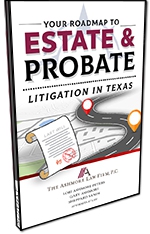.jpg) A Trust is another type of estate plan, but may not always be necessary. There are many different types of trusts to fit many different types of situations and property. A Trust can be either revocable or irrevocable. Let’s discuss the difference between a Revocable Trust and an Irrevocable Trust.
A Trust is another type of estate plan, but may not always be necessary. There are many different types of trusts to fit many different types of situations and property. A Trust can be either revocable or irrevocable. Let’s discuss the difference between a Revocable Trust and an Irrevocable Trust.
If the person who sets up the trust reserves the right to revoke, amend, terminate, or change the Trust after it becomes effective, then the Trust is said to be a "revocable trust."
An “irrevocable trust” cannot be amended, terminated, revoked, or changed by the settlor after it has become effective.
Let’s simplify this. If you put some or all of your property into a revocable trust, you can get the property back any time you want. You can also change the terms and conditions of the Trust. You can make changes to some or all of the beneficiaries who will receive benefits under the Trust.
When you create a revocable living trust and transfer some or all of your property to it, you still retain all the perks of ownership to that property. You can sell it; give it away, change the beneficiaries of that property upon your death, as well as determine how the property will be managed and invested while it's in the Trust. You really don't give up any rights to your property when you transfer it to a revocable living trust. You are still treated as the owner of the property for tax purposes.
An irrevocable living trust is treated differently. If you transfer some or all of your property to an irrevocable living trust, you are giving up all your rights to that property. Remember, an irrevocable trust is one that you no longer have the right to amend, revoke, terminate, or change. In other words, you give up all your rights to any property you transfer to an irrevocable living trust. It's like you are giving the property to another person with no strings attached. You can’t change your mind and take it back.
Remember, trusts are not just for the wealthy. A Trust will allow you to put conditions on how and when your assets will be distributed upon your death. You should consult a qualified estate planning attorney to determine if a trust is necessary for your situation and which type of trust would be most beneficial to achieve your goals and objectives.
Want more information about trusts? We have a whole chapter about trusts in our book, Do I Really Need a Will?
Do You Need To Speak With An Experienced Estate Planning Lawyer In The Dallas Area?
If you need to speak to an experienced estate planning attorney please contact us online or call our Dallas office directly at 214.559.7202. We help clients throughout the Dallas area with all of their estate planning needs and look forward to helping you.


